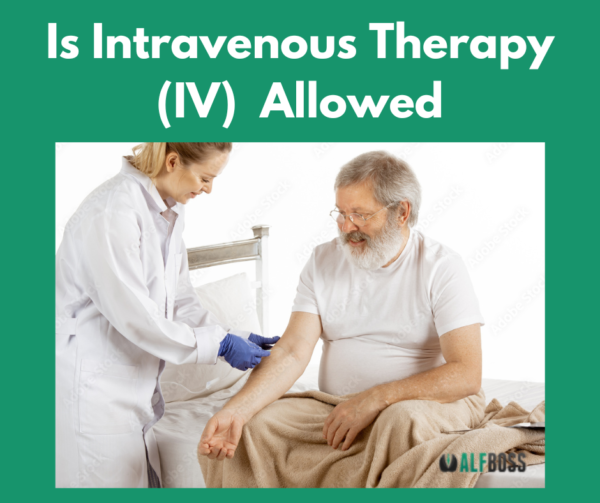
Assisted living facilities play a crucial role in providing care and support to residents, especially those with complex medical needs. One of the essential aspects of care in such facilities is Intravenous (IV) therapy. In this article, we will explore what IV therapy entails and the regulations governing its administration in assisted living facilities.
Regulations Regarding IV Therapy:
The regulations pertaining to IV therapy in assisted living facilities are outlined in Florida Administrative Code 59A-36.006, specifically focusing on Admission Procedures, Appropriateness of Placement, and Continued Residency Criteria. According to these regulations:
“Facilities with ECC or LNS licenses: Assisted living facilities that hold an ECC (Extended Congregate Care) or LNS (Limited Nursing Services) license are allowed to provide IV therapy services to their residents. This inclusion ensures that residents with higher medical needs can receive the necessary care within the facility.
Standard and Limited Mental Health Facilities: In contrast, facilities with only standard and/or limited mental health licenses are restricted from offering IV therapy within the facility. This limitation is in place to ensure that residents who require IV therapy receive care in more specialized settings.”
In addition to these regulations, IV services must be included on the resident’s 1823 form.
Personal Recommendation:
While the regulations allow for IV therapy in certain assisted living facilities, my personal suggestion is to advocate for the resident to receive these services in a hospital or be sent to a rehab center where they can receive the necessary care. In many cases, it may be necessary to apply pressure on the hospital to make these arrangements. If the hospital is unable or unwilling to do so, it is advisable not to accept the resident back into the facility until home health services have been arranged to provide the required IV therapy services.
What is Intravenous Therapy?
Intravenous therapy, commonly known as IV therapy, is a medical procedure that involves delivering fluids, medications, or nutrients directly into a patient’s bloodstream through a vein. This method of administration is particularly important when a resident’s health condition requires immediate and precise delivery of substances. IV therapy can be used for various purposes, such as rehydration, antibiotic administration, and pain management.
Best Practices for Facilities Allowing IV Therapy:
For assisted living facilities that are authorized to provide IV therapy, there are several best practices to ensure safe and effective administration:
Qualified Staff: Facilities should have trained and qualified healthcare staff, such as licensed nurses, who can administer IV therapy and monitor residents’ responses.
Proper Equipment: Ensure that the facility is equipped with the necessary IV equipment, including infusion pumps, sterile supplies, and IV catheters, to deliver therapy safely.
Care Planning: Each resident’s IV therapy should be part of their individualized care plan, tailored to their specific medical needs and monitored regularly for effectiveness and safety.
Infection Control: Strict adherence to infection control practices is essential to prevent complications associated with IV therapy, such as bloodstream infections.
Collaboration with Home Health: As a best practice, consider involving home health agencies for more complex cases, as they can provide additional expertise and support in IV therapy administration.